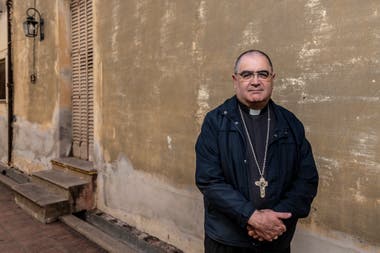The bishops’ conference of Argentina has said it is examining and will respond to a new report of more than 60 allegations of sexual abuse by priests and religious in the country.
Officials with the conference said they are working on new protocols and actions to protect minors, following the Vatican summit on the topic earlier this year.
A recent report in La Nación detailed 63 cases of alleged sexual abuse by priests and religious of the Church in Argentina in the last two decades. Of these cases, 17 resulted in convictions, 22 are in judicial process, 24 were not prosecuted and 12 led to dismissal from the clerical state.
Among the cases mentioned are those of Juan Escobar Gaviria, who is now serving a 25-year prison sentence; Nicola Corradi, accused of abusing hearing impaired minors at the Próvolo Institute; and Gustavo Zanchetta, the bishop emeritus of Orán and adviser to the Administration of the Patrimony of the Holy Apostolic See since December 2017, who is under investigation at the Vatican for alleged sexual abuse and the abuse of power.
In their report, La Nación says that the Church in Argentina “for years covered up its priests and religious accused of sexual abuse” through a system of transferring them to new assignments rather than removing them from ministry.
Bishop Sergio Buenanueva of San Francisco warned in a statement that transferring priests accused of sexual abuse was a “habitual” and “totally fatal” practice.
“There is a sick system in the Church that covered up, or inhibited the abuses from coming to light and it ended up favouring the perpetrator,” said Bishop Buenanueva, who serves as coordinator of the Pastoral Council for the Protection of Minors and Vulnerable Adults of the Argentine Bishops’ Conference.
The prelate said they are in the process of making a complete list of the cases, “as other episcopates have done”.
Buenanueva told ACI Prensa that the bishops’ conference will take “a few days to assess and evaluate” the report.
In March, during the 117th plenary assembly of the Argentine Bishops’ Conference, the bishops called for “a radical break” with conditions of sexual abuse, the abuse of power, and cover up.
“We must renew at its roots the lifestyles and formation structures that have made it possible to create in some clerics a sense of superiority and dominion over the faithful and which have facilitated their living, as if they didn’t have to give an account of their actions to anyone, in a situation of veritable impunity,” said the Bishop Oscar Ojea of San Isidro, president of the Argentine Bishops’ Conference.
Catholic News Agency


 Bishop Sergio Buenanueva
Bishop Sergio Buenanueva 